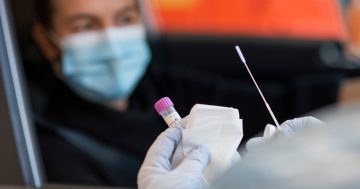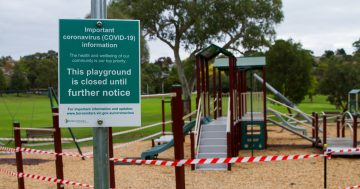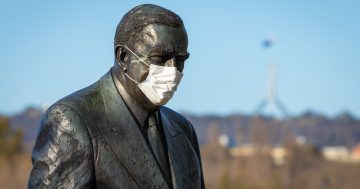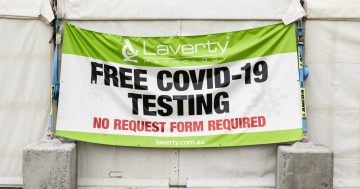
Vaccinate and boost, wear a mask, socially distance, wash your hands, sanitise … you can do the right things and still get COVID. Photo: David Murtagh.
It’s just like a mild cold, they said. If you’re vaccinated, you’ll barely experience the symptoms. It’s really not that bad. Well, six days after contracting Omicron, I have to say it was definitely that bad. In fact, it has been worse than I expected in almost every way.
Last Wednesday, both my partner and I woke up with sore throats. We’d been told that a family member we’d recently seen was going to get tested for COVID as they had been feeling unwell.
At first, I was pretty convinced that we wouldn’t test positive. For a start, we’re both vaccinated and I have had my booster as well. We’re all avid mask wearers and sanitisers. And even though all the evidence around me showed that Omicron spreads like crazy and that all of those safeguards wouldn’t prevent me from getting the virus, just from experiencing the worst of it, I really wanted to believe I could dodge it.
I did a rapid antigen test which came back negative, but by that point, I was feeling feverish and achy, so the next morning, I spent three hours in line at the Mitchell testing facility and got a PCR. We also found out that our relative tested positive.
We isolated, assuming the worst, and 2.5 days later, I got the dreaded text message. In fact, I received five dreaded text messages over the next eight hours because ACT Health kept resending my notification as if the first one hadn’t quite sunk in. Positive. It was here. After two years of waiting for it, I got COVID.
Before Omicron, living in Canberra, I genuinely didn’t think that I would actually get COVID. We had done such a good job containing the spread, I don’t work in any high-risk occupations, and I’m really lucky to be able to easily and effectively socially distance.
Once I did get it, I was still pretty sure that the bad feelings would be gone in a day or two. Instead, I’ve had six days now of feeling the worst I have from any illness ever. Fever, aches, nausea, headaches, sore throat, wheezing in my chest, you name it, I’ve had it.
Most days, it’s been an immense effort to get up, and most of my time has been spent lying on the couch trying to digest any form of entertainment that my sliding attention span can lock on to. I do have an underlying condition, with already causes ongoing chronic pain, but my very healthy partner was equally affected, so I think it’s fair to say that my experiences are likely to be shared by other people who get Omicron.
One thing is for certain – if this is what it’s like to have COVID having had all my jabs, I can’t imagine how bad it is if you’re not vaccinated. And those who say we should just let it rip through the community, that everyone is going to get it anyway, that we just have to get back to normal and stop being held hostage by the virus – I think you might sing a different tune if you’d actually had it.
It’s hard to know when the fog of fatigue and fever will fully lift, and of course, the threat of long-COVID is giving me a fair amount of anxiety.
The level of support provided by health services is very minimal. There are various opt-in telehealth opportunities, but I shudder to think what would happen if I was illiterate, had language barriers, lived with disability or a mental health condition, or was experiencing an unstable or unsafe home environment. Luckily for me, I have plenty of family and friends around to bring groceries; I live with my partner, so we both had company; and we don’t have kids, which would be very stressful and difficult.
In many ways, I have the best possible life to suffer the minor inconvenience of illness. And it has still absolutely drained me of all energy, any enthusiasm for the next day, week or month, and an inability to imagine getting back to ‘normal’.
Take it from me – you don’t want COVID. Take every possible precaution you can to avoid infection, and don’t think you’re overreacting if you’re feeling unwell and want to get tested. I am so glad we isolated as soon as we had the first inkling of symptoms and that no one else in our immediate networks has caught it from us.
Here’s hoping the rest of 2022 is better than the past fortnight.





















